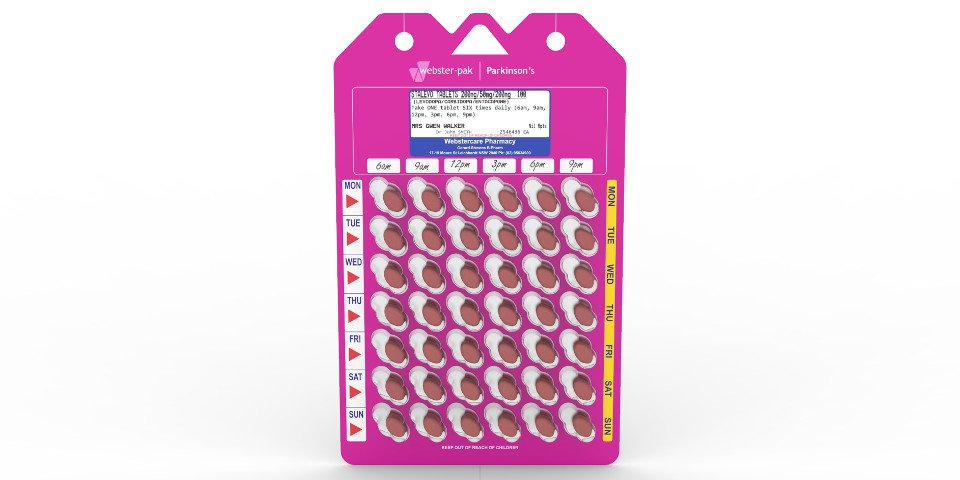People living with Parkinson’s disease will be able to better manage the need for increased medication frequency and on-time dosing intervals with this week’s launch of the Webstercare Parkinson’s 6 Dose Webster-Pak.
While standard Webster-paks allow for medication to be taken four times a day, the new Parkinson’s 6 Dose Webster-pak was specifically designed for the unique needs of those living with the disease.
About 80,000 people are living with Parkinson’s disease in Australia, with one in five being diagnosed before the age of 50.
However, the cause of the disease remains a mystery and current treatments only mask its multiple, debilitating motor symptoms. These may include hand and body tremors, limb and body stiffness, and difficulty walking.
Webstercare Managing Director Gerard Stevens says people living with Parkinson’s will freely acknowledge the daily challenges it presents, especially when medications are not taken on time.
“Any delay in taking, or having the medication administered, can cause a patient to enter an off phase and become rigid, slow and unable to move,” he said. “For a patient to transition back into the on phase, additional medication is required.”
Mr Stevens says the new Parkinson’s 6 Dose Webster-pak extends the company’s Parkinson’s range and is designed to help nurses, carers and patients administer Parkinson’s medication on time, every time. Each product within the Parkinson’s range, he adds, can be identified by the colour fuchsia and has space for clear, customisable dosage times.
Webstercare says the Parkinson’s 6 Dose Webster-pak accommodates more dosage times, potentially saving pharmacies time and cost. The company adds that, as with its other products, packing is fast and simple with versatile pre-inserted blisters and a low temperature foil allowing changes to be easily made.
For further information, email info@webstercare.com.au.






